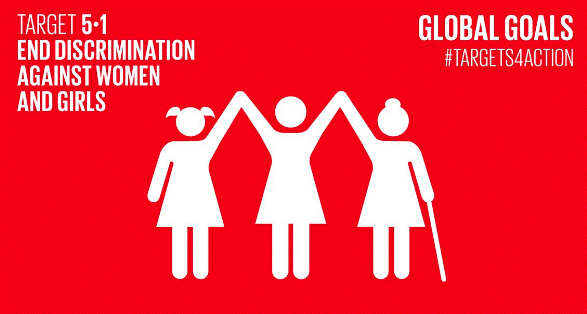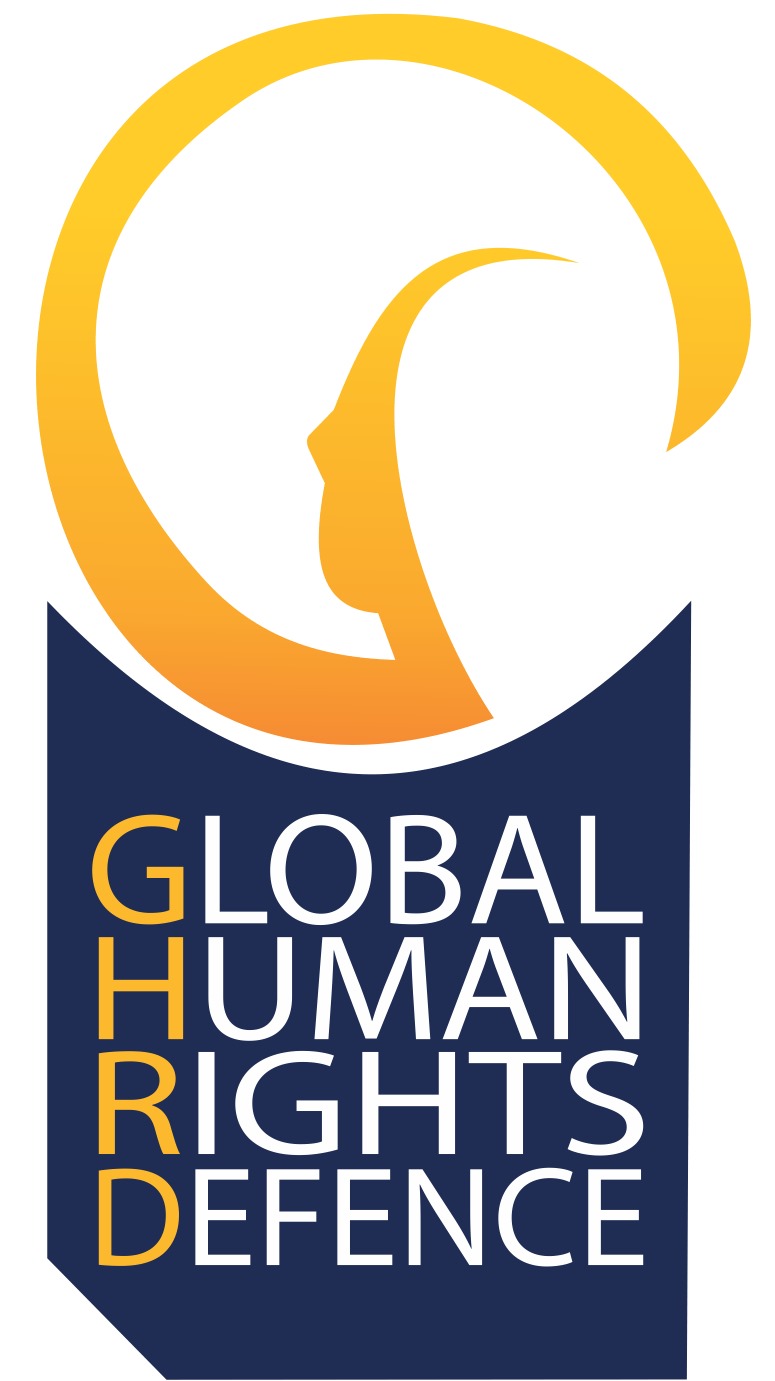- info@ghrd.org
- Mon-Fri: 10.00am - 06:00pm
The 16th Meeting of the 56th Session of the Human Rights Council: Discussion on Discrimination Against Women and Girls

The 16th Meeting of the 56th Session of the Human Rights Council: Discussion on Discrimination Against Women and Girls
01-07-2024
Written by Haneen Alawawdeh
Team UN Geneva Researcher,
Global Human Rights Defence.
Introduction
The 16th meeting of the 56th session of the Human Rights Council discussed issues related to discrimination against women and girls in a dialogue with the Working Group. Dorothy Estrada-Tanck, the Working Group Chair presented a report titled “Escalating Backlash Against Gender Equality and the Urgency of Ensuring Womens and Girls Human Rights.” Additionally, another report highlighted challenges faced during country visits to Mauritania and Malta emphasizing the backlash against women rights. The report outlined recommendations for combating gender discrimination across sectors, like family, culture, economy, politics, and sexual health. Also, Recognized the contributions of women movements worldwide in advancing rights and promoting inclusive societies.
Mauritania: Progress and Challenges
Mauritania has been praised for its efforts to improve access, to education for women and girls although there are still challenges ahead. The Working Group acknowledged Mauritanias steps towards achieving gender equality through enhancing its political and legal frameworks. Despite these advancements the disparity in women participation in the workforce is striking, with only 26.4% of women engaged. Ownership of land and homes by women remains at low levels. Also, while there have been some improvements, maternal mortality rates in Mauritania rank among the highest. Concern was raised by the Working Group regarding rates of pregnancy, child marriage forced marriage and polygamy – practices that are legally permitted with minimal restrictions. The Working Group called on the government to enact a law addressing gender-based violence and to enhance existing legislation in accordance, with norms.
Malta: Progress and Challenges
Malta has been praised for its progress in promoting gender equality and empowering women
economically, and advancing their education. The nation has established a policy and institutional framework to safeguard and enhance the human rights of women and girls. Malta’s efforts in championing rights regionally have also been commended for LGBTQI+ rights. Despite these accomplishments challenges persist such as gender stereotypes, insufficient representation of women in leadership roles, the call for work-life balance, and the prevalence of violence, against women. The Working Group showed worry, about Malta’s laws on abortion and the tense atmosphere surrounding discussions on reproductive health rights.
International Reactions and Statements
Statements from representatives of numerous countries followed the report presentation, echoing the concerns outlined by the Working Group. The European Union, Australia, Canada, Mexico, Gambia, Finland, Portugal and other nations called for increased efforts to promote gender equality and combat discrimination against women and girls. Many countries stressed the importance of taking an inclusive approach to address challenges related to gender equality. They highlighted the need to address the causesof discrimination and ensure access to education, healthcare, employment, and essential services for all women and girls.
In addition, Mexico (on behalf of the Group of Friends of the Convention on the Rights of Persons with Disabilities) expressed concerns about intersecting forms of discrimination faced by women and girls, with disabilities.
During discussions on resistance to gender equality initiatives Australia (speaking on behalf of Canada and New Zealand) expressed worries about technology being used to perpetuate gender based violence. They emphasized the importance of holding perpetrators accountable and taking action towards achieving gender equality goals. Finland (representing the Baltic States) highlighted setbacks in womens rights and emphasized the need to address implementation gaps that could perpetuate discriminatory practices through technology.
On the other hand, regarding the enforcement of human rights laws and standards countries such as Australia, Canada, the European Union, Gambia, Indonesia, Kuwait, Lebanon, Slovenia, South Africa, and Zimbabwe underscored the need for determination following through with legal measures and adopting a culturally sensitive approach that upholds womens rights. They also stressed the importance of efforts against any regression in womens rights protections and highlighted how gender equality is essential for maintaining universal human rights standards.
Conclusion and Recommendations
The Working Group wrapped up with key recommendations; embracing gender equality, as a value tackling the root causes of inequality ensuring women and girls have full participation in all aspects of life taking proactive measures against setbacks in gender equality safeguarding the human rights of women and girls without bias enhancing global collaboration and adopting a comprehensive approach to promoting gender equality.
Major obstacles identified included the growing resistance to gender equality persistent gaps in implementation and the impact of technologies on gender disparities. The discussions emphasized the urgency of addressing these hurdles. Stressed the significance of teamwork in creating a fair and just world for women and girls.
In summary, the statements and speeches examined in this report shed light on the endeavors and obstacles in attaining gender equality and empowering women. Sustained dedication and innovative tactics are crucial to tackle the issue of discrimination against women and girls. The perspectives shared by delegates and special envoys provide insights, into progress achieved thus far as well as the tasks that lie ahead.
Sources and further readings:
United Nations. (2024). Escalating backlash against gender equality and urgency of reaffirming
substantive equality and the human rights of women and girls: Report of the Working Group on discrimination against women and girls (A/HRC/56/51, Agenda item 3). Retrieved from
https://documents.un.org/doc/undoc/gen/g24/073/47/pdf/g2407347.pdf?token=Aa7aD9dRXW3IgkY
kHl&fe=true
United Nations. (2024). Visit to Mauritania: Report of the Working Group on discrimination against women and girls (A/HRC/56/51/Add.1, Agenda item 3). Retrieved from
https://documents.un.org/doc/undoc/gen/g24/072/33/pdf/g2407233.pdf?token=0jNJzTgtmriGCo5ph
r&fe=true
United Nations. (2024). Visit to Malta: Report of the Working Group on discrimination against
women and girls (A/HRC/56/51/Add.2, Agenda item 3). Retrieved from
https://documents.un.org/doc/undoc/gen/g24/067/82/pdf/g2406782.pdf?token=Uuvg95ZW7qtOBOv
7QZ&fe=true
Search
ABOUT US
Global Human Rights Defence (GHRD) is a dedicated advocate for human rights worldwide. Based in The Hague, the city of peace and justice. We work tirelessly to promote and protect the fundamental rights of individuals and communities. Our mission is to create a more just and equitable world, where every person's dignity and freedoms are upheld. Join us in our journey towards a brighter future for all.
ALL CONTACTS
-
Riviervismarkt 5-unit 2.07
2513 AM The Hague - Phone +31 62 72 41006
- info@ghrd.org
-
10:00am - 06:00pm
Saturday & Sunday Closed - Bank Details: NL69ABNA0417943024
SUBSCRIBE
Stay informed and be part of change - Subscribe to our newsletter today!
- Copyright of ghrd 2023. Powered by Desmantle Studio.


Leave a Reply